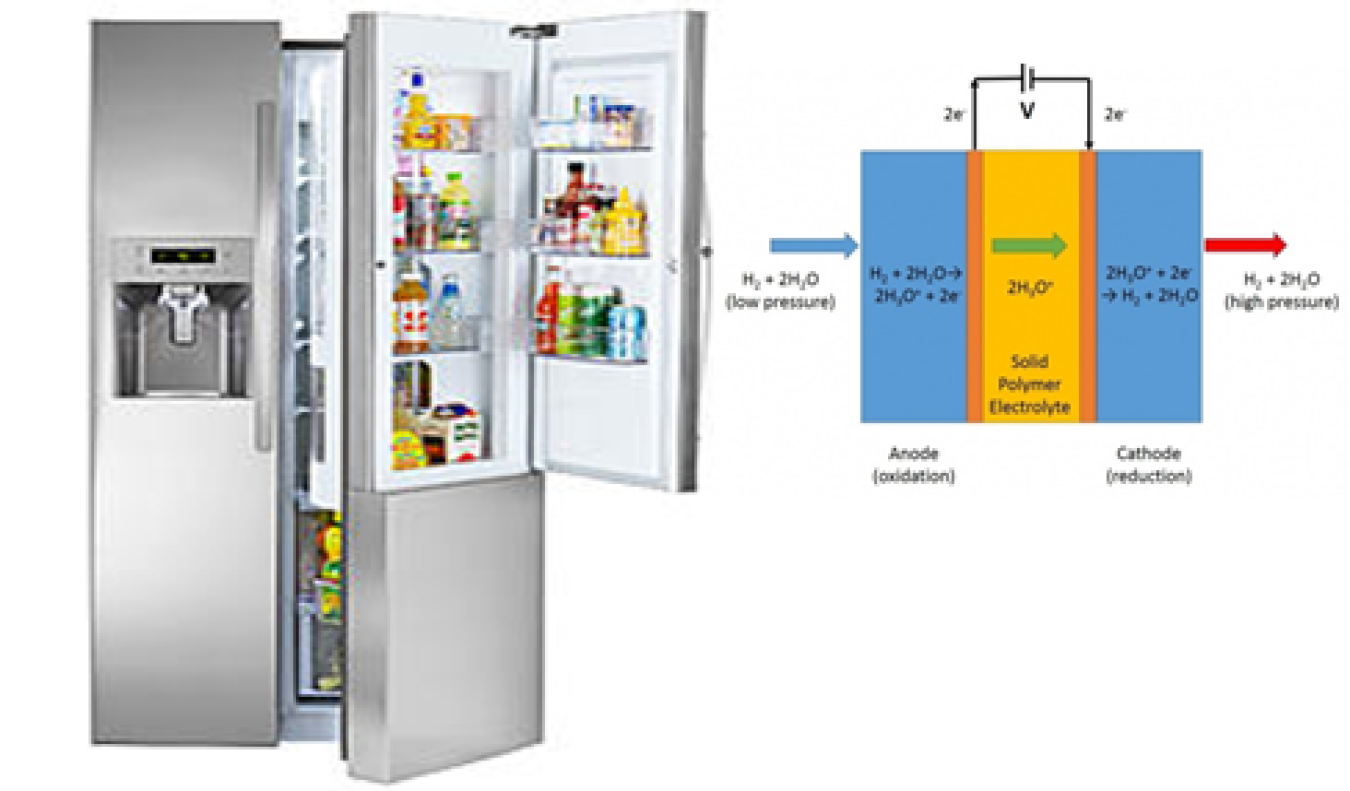Lead Performer: Oak Ridge National Laboratory – Oak Ridge, TN Partner: Xergy Inc. – Seaford, Delaware
May 22, 2019
Lead Performer: Oak Ridge National Laboratory – Oak Ridge, TN
Partner: Xergy Inc. – Seaford, Delaware
DOE Total Funding: $250,000
FY18 DOE Funding: $100,000
Project Term: October 2017 – September 2019
Funding Type: Direct Funded
Project Objective
Oak Ridge National Laboratory will develop a domestic refrigerator using an innovative electrochemical compressor (ECC), by collaborating with Xergy Inc. Unlike mechanical compressors, electrochemical compressors don’t have any moving parts and are not subject to volumetric efficiency loss due to residual volume, and isentropic efficiency loss due to internal heating, motor efficiency and friction loss.
In addition, refrigerant mass flow of an electrochemical compressor can be varied by adjusting the electric power input, i.e. electric current. Therefore, it has the advantage of a variable-speed compressor, and will lead to superior part load performance in a refrigerator system. ORNL will use an ECC developed by Xergy and develop a refrigerator targeting 20% energy compared to baseline DOE minimum efficiency standard refrigerator.
Project Impact
Heating, ventilation, air conditioning, and refrigeration (HVAC&R), water heating and appliance technologies represent more than half of the total energy used in U.S. residential and commercial buildings.1 Daily use of refrigerator/freezers, dishwashers, laundry equipment, and cooking equipment accounts for approximately 15% of residential building primary energy consumption.
Contacts
DOE Technology Manager: Antonio Bouza
Lead Performer: Ayyoub Momen, Oak Ridge National Laboratory
Related Publications
Shen, Bo; Fackler, Scott; and Bamdad, Bahar, "Experimental Study to Characterize Performance of a Prototype Electrochemical Compressor" (2018). International Compressor Engineering Conference. Paper 2524.
..............
1 U.S. Energy Information Administration. Annual Energy Outlook 2014 with Projections to 2040. DOE/EIA-0383(2014). Washington, DC: Energy Information Administration, 2014.

